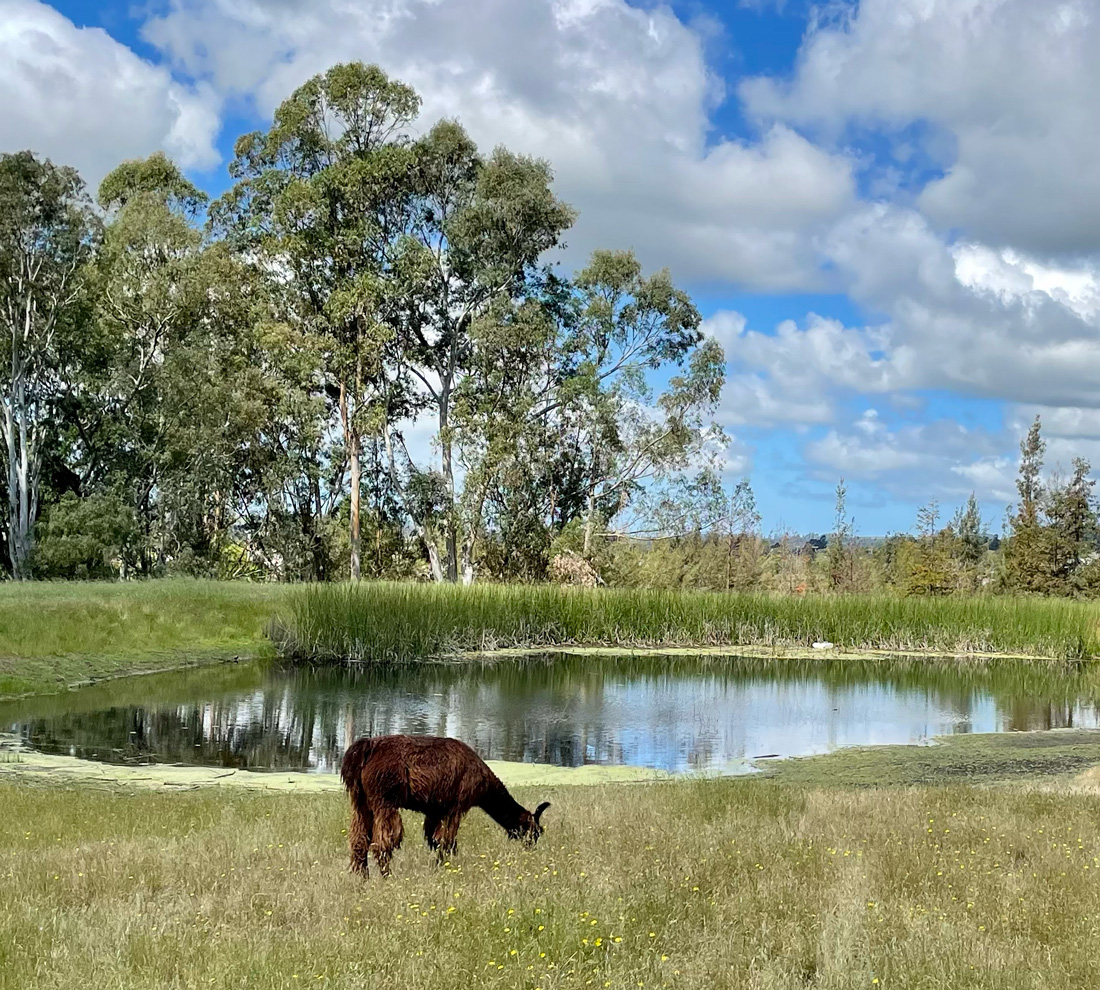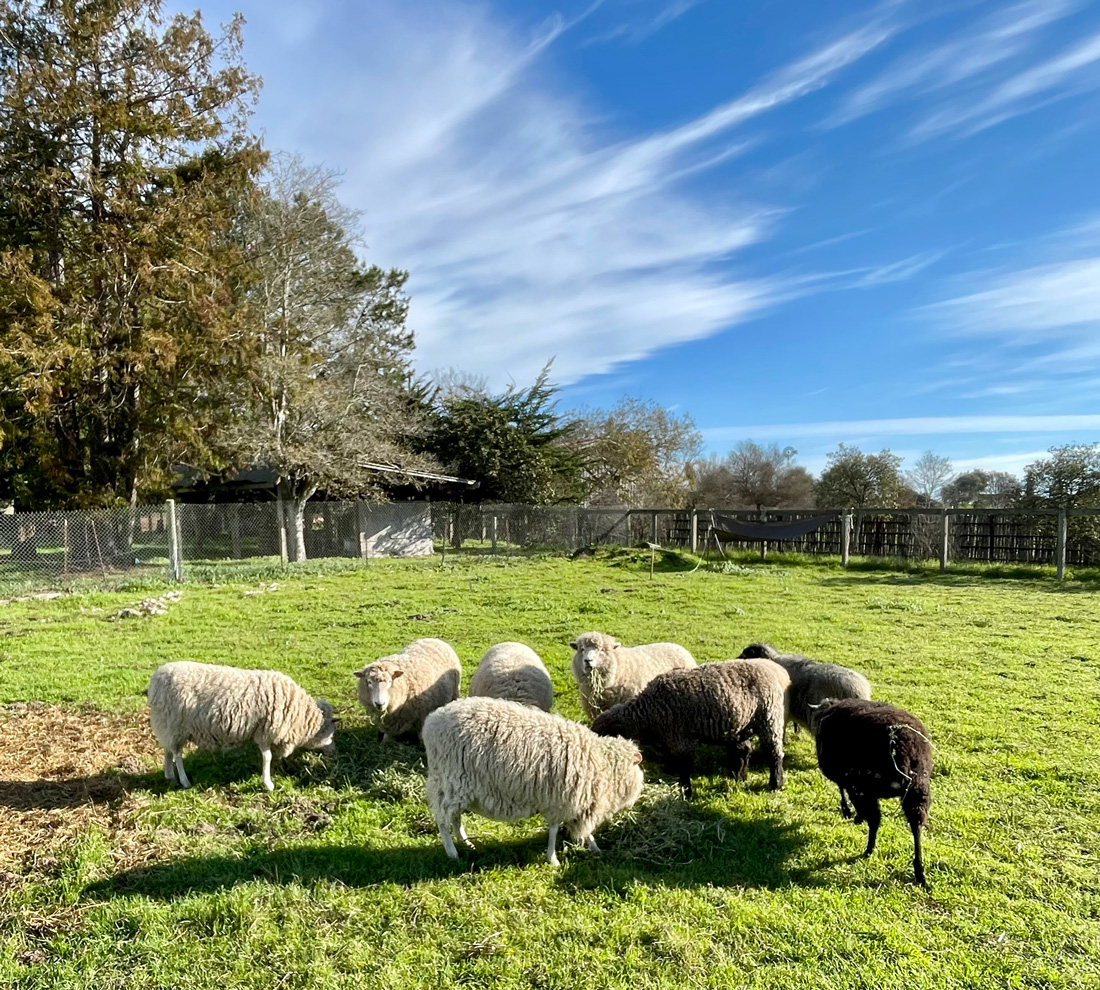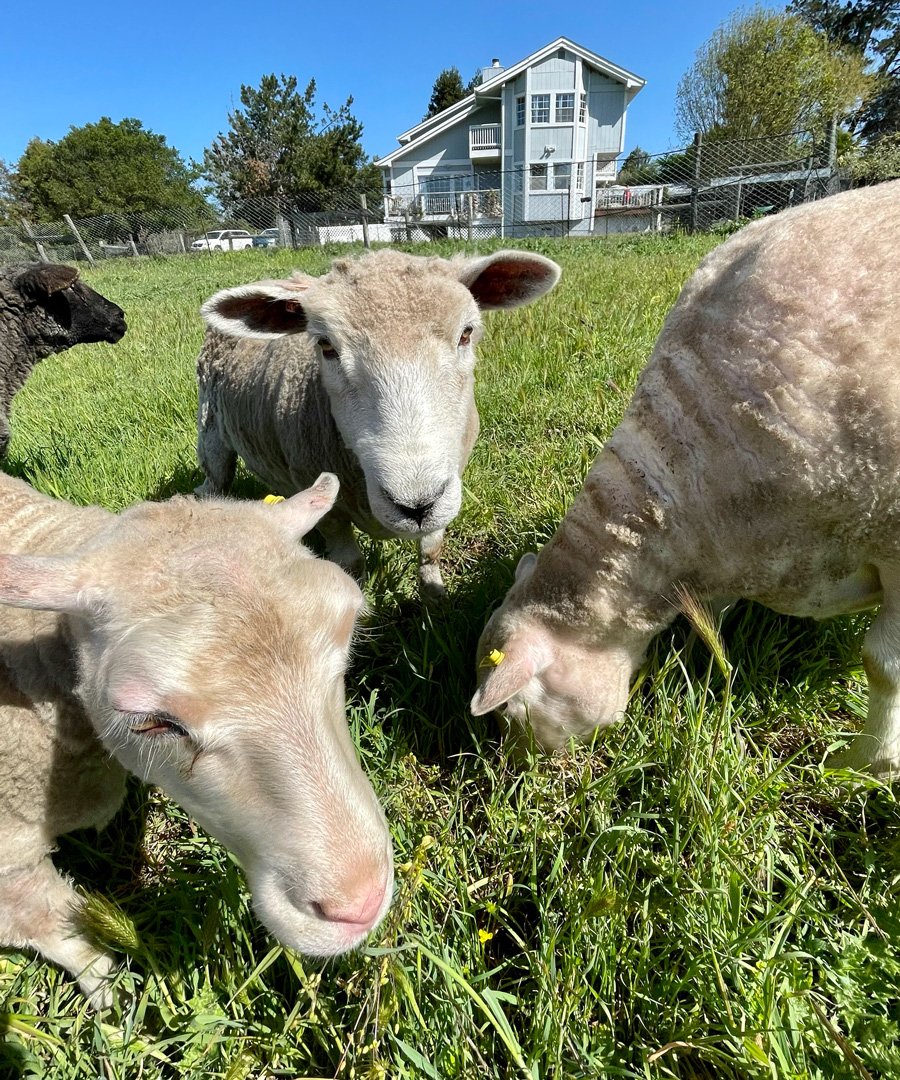Prescribed Herbivory
Our animals graze on our pasture to reduce accumulated fuel load and the risks posed by catastrophic fire events. Climate change has brought about the increase in frequency and severity of wildfires in California. In Sonoma county, wildfires are common in our region. We utilize prescribed herbivory, a term referring to the intentional use of livestock to graze across the landscape, which naturally removes vegetation that contribute to fuel loads.
Fire Prevention
Our animals are not only fiber-producing animals, but also have fire prevention benefits. The organic matter produced by sheep increases the percentage of organic carbon in the soil, which results in the soil’s increased ability to hold water. This provides a critical buffer to the impacts of drought. Our animals are an integral part of vegetation management. As our animals graze, they prevent dry brush which fuels wildfires from accumulating, and eliminates the need for herbicides to kill weeds. The manure and urine of our livestock enriches the soil. This synergistic relationship of the animals with the land promotes ecological resilience.


Benefits of Prescribed Grazing
Prescribed grazing also rejuvenates growth of native grasses. Livestock provide a less expensive and environmentally friendly alternative to mowing. Our animals are self-propelled, non-complaining biological masticators that consume unwanted biomass that contribute towards positive ecological outcomes by enhancing bio-diversity and encouraging pollinator habitats in our landscape. They control invasive species, build organic soil matter which eliminates the need for synthetic fertilizers, and improve plant and wildlife habitats.

